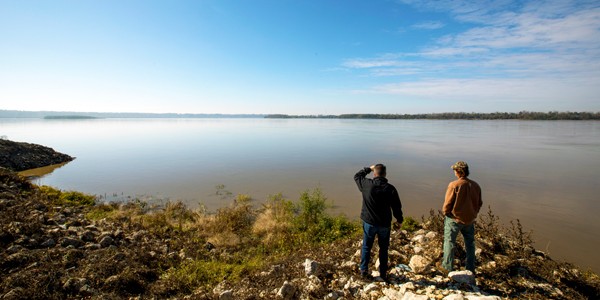 Justin Fox Burks
Justin Fox Burks
Clean-water advocacy groups are asking state officials to postpone new water permits until after coronavirus orders have been lifted here to ensure the public has a say on projects that affect the “lives and lands of Tennesseans.”
State officials can now legally hold meetings electronically. But members of the Tennessee Clean Water Network (TCWN) and more say public input is vital to decisions that allow permits under the federal Clean Water Act. These permits include permissions to pollute or to alter a stream, river, lake, or wetland.
The request was formalized in a letter to Tennessee Governor Bill Lee and members of his administration Monday. The letter was sent by the TCWN and signed by members of the Tennessee Office of Public Employees for Environmental Responsibility, the Tennessee Chapter of the Sierra Club, Community eMpowerment, Clean Water Expected in Tennessee, and the Harpeth Conservancy.
[pullquote-1] They all want the Tennessee Department of Environment and Conservation (TDEC) to suspend new Clean Water Act permits for 60 days after the coronavirus emergency declaration for Tennessee has been lifted.
They want this pause, specifically, because some members of the public may not get their voices heard. The executive order signed by Lee says if a meeting can’t be streamed live, it will be made available to the public in two business days.
“For a public hearing on a (Clean Water Act) permit — one whose sole purpose is to inform and solicit feedback from the public — this is unacceptable,” reads the letter.
Further, the groups say if a meeting can be streamed live, it may not be available to everywhere as “most of Tennessee’s rural areas do not have broadband internet access and would be unable to participate.”
“Tennesseans rely on your administration to responsibly execute the (Clean Water Act) and the Tennessee Water Quality Control Act, both of which clearly dictate a thorough and detailed public participation process, one which is — at present — unarguably hindered.”